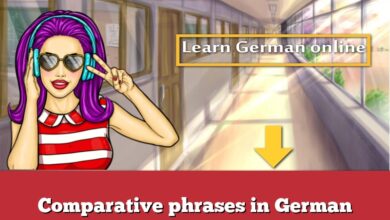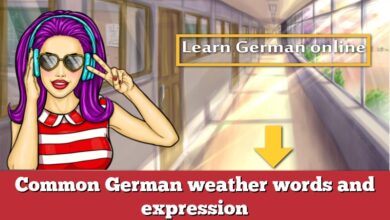German Formal Conversations and Kein-words

German Formal Conversations
In this lesson , you will learn how to make German formal conversations and Kein-words in a proper way . In a previous lesson , you learned how to talk formally , using phrases like “Guten Morgen!” and “Wie heißen Sie?” . There are , however , a few words that are ‘survival words’ in Germany , specifically :
- Danke → Thank you , Thanks
- Bitte → Please and You’re welcome .
To make this even more formal , you can tack on the word ‘schön’ to the end of “Thank you” and “You’re welcome” to make ‘dankeschön’ and ‘bitteschön’ (both one word) in response . Schön literally means ‘pretty’ , so it turns those everyday phrases into compliments (“Thanks, pretty.”) .
Some other ways to say “thank you” :
- Dankeschön → Thank you very much
- Danke sehr → Thanks a lot
- Herzlichen Dank (“herzlichen” means sincere or from the heart ; you may remember it from “Herzlichen Glückwunsch zum Geburtstag!” )
- Vielen Dank → Thanks a lot
- Tausend Dank → Thanks a million (literally means a thousand, but no one ever says “Thanks a thousand.”)
- Aufrichtigen Dank → would be “thank you sincerely” (very formal)
Some other ways to say “You are welcome” :
- Bitteschön !
- Bitte sehr !
- Gerne !
- Gern geschehen ! (Don’t mention it)
- Kein Problem ! (No problem)
- Dafür nicht ! → (Do) not (thank me) for this (only used in Northern Germany)
Kein-words
Twice you have been taught that the ending of the indefinite article for plurals would be eine (for Nominative and Accusative cases) , if there was an indefinite article for plurals . Now that lesson applies . The kein-words have the same endings as the ein-words , and they mean the opposite : no , not any , none . For example , “ kein Cheeseburger ” means “no cheeseburger” . “Keine Cheeseburger” (in this case Cheeseburger is plural) means “No cheeseburgers” . Notice the ‘e’ at the end of ‘keine’ . That’s the ending for plurals and feminine nouns and can be likened to the “der, die, das -> die” relationship , where the feminine article serves for the plural as well .




























